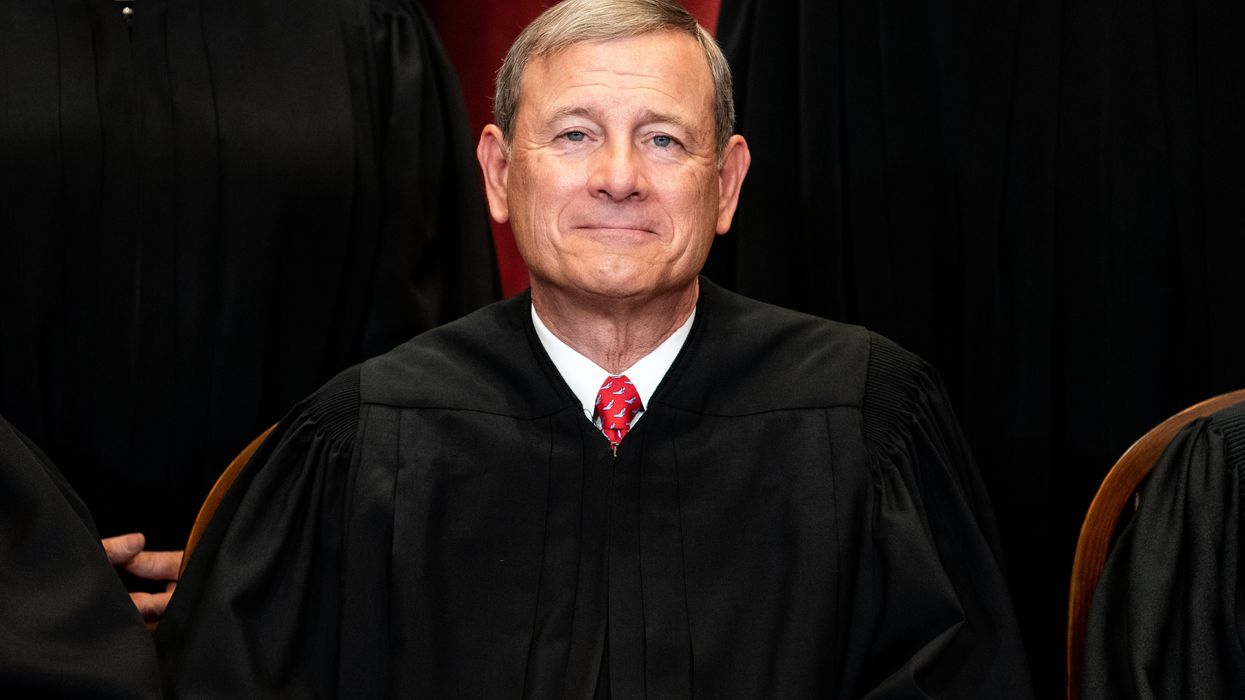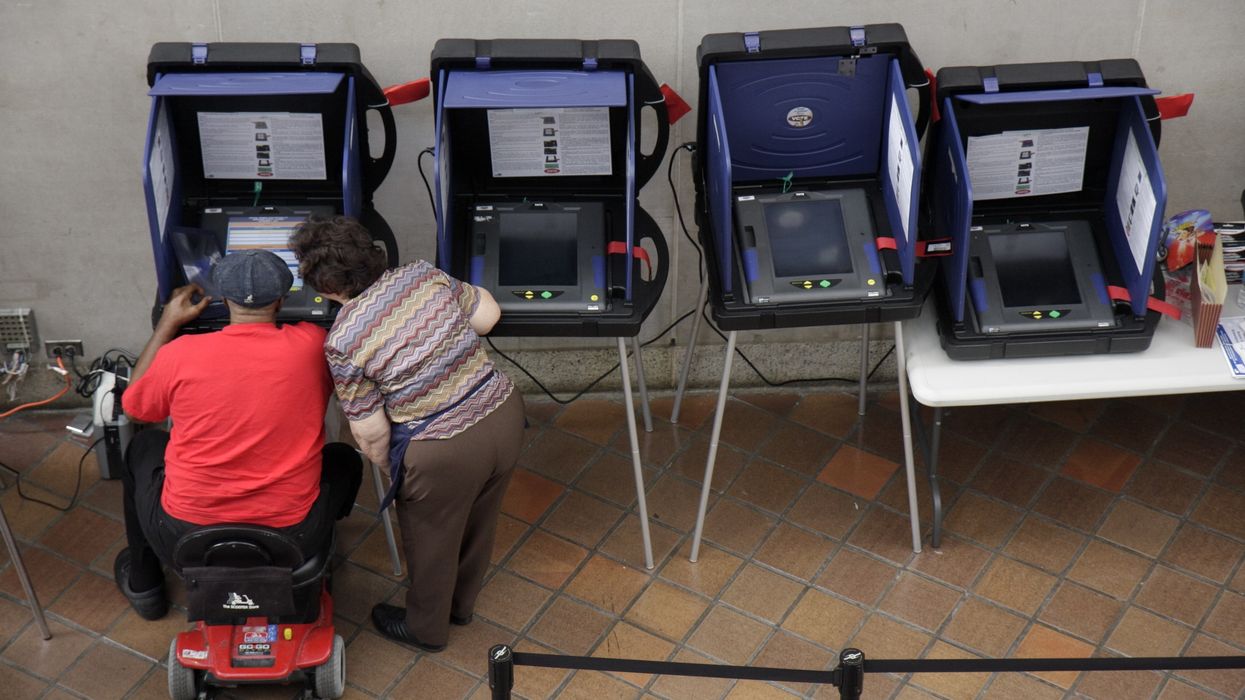The Supreme Court, the Voting Rights Act, and Racial Gerrymandering
When it comes to voting rights, no single institution has been more destructive than the nation’s top judicial body under the hypocritical leadership of Chief Justice John Roberts.
In his 2005 Senate confirmation hearing, Roberts promised to serve as chief justice in the fashion of a baseball umpire, calling “balls and strikes, and not to pitch or bat.” That was nonsense then, and it’s nonsense now.
Roberts has always been a Republican insider and activist, dating back to his stint in the early 1980s as a crusading young lawyer in the Justice Department, where he wrote upward of 25 memos, suggesting strategies to limit the scope of the Voting Rights Act (VRA), the landmark legislation passed by Congress in 1965 to outlaw racial discrimination in voting.
Redistricting experts predict that if the GOP gambit in Texas and elsewhere succeeds, the party could hold the House until 2050.
In 2013, he made good on his lifelong mission by authoring the infamous 5-4 majority opinion in Shelby County v. Holder, one of the most regressive rulings in Supreme Court history. Shelby gutted sections 4 and 5 of the VRA, which had required state and local jurisdictions, mostly in the South, with histories of egregious voter suppression, to obtain advance federal approval—a process known as “preclearance”—before making changes to their election procedures. Roberts declared in Shelby that “things have changed dramatically” since the passage of the VRA and that racial discrimination in voting no longer took place.
Shelby left Section 2 of the VRA as the last remaining bulwark of the law. That section prohibits voting practices that discriminate on the basis of race, color, or language. Both the Supreme Court and the lower federal courts have long recognized the right of private parties and organizations to file lawsuits under Section 2 to challenge “racial gerrymanders,” which occur when a state uses race as the primary factor in redistricting to dilute the voting power of minority populations. Civil rights groups like the American Civil Liberties Union and the NAACP Legal Defense Fund have used Section 2 litigation to force the creation of numerous majority-Black or “majority-minority” voting districts to give minorities a fair chance to elect candidates that reflect their views.
All that could change when Roberts and his Republican benchmates hear oral arguments in Louisiana v. Callais on October 15. The case stems from a complaint brought by a group of individuals who describe themselves in court filings as “non-Black voters.” They contend Louisiana violated their 14th Amendment rights to equal protection when it created a second Black-majority voting district in 2024 to give Black voters, who comprise nearly a third of the state’s electorate, proportional representation in the state’s six-member congressional delegation. If the court agrees with them, it could gut Section 2, leading to the elimination of an estimated 11 Black-majority districts, all held by Democrats, across GOP-controlled Southern states. Such a decision would neuter what little remains of the VRA.
Political Gerrymandering, Texas and California
Even if the court rules against the “non-Black” plaintiffs in Callais, it has given its blessings to another method of election rigging known as “partisan gerrymandering”—the practice of drawing state voting districts to benefit the political party in power. In 2019, by way of a 5-4 majority opinion penned by Roberts, Rucho v. Common Cause, the court held that partisan gerrymandering, no matter how disproportional or extreme, presents a “nonjusticiable political question” that lies beyond the jurisdiction of federal judges to alter or correct.
Both parties have traditionally engaged in partisan gerrymandering, but the GOP has perfected the technique in the wake of Rucho, with Texas as a prime example. Responding to a direct demand from Trump, the state has drafted a new congressional voting map designed to give Republicans an additional five House seats. Other Republican states, including Florida, Indiana, Missouri, and Ohio, are likely to heed Trump’s plea and revise their voting maps before the midterms.
The GOP’s moves have finally awakened a fighting spirit among Democrats, but the outcome of the counterattack is uncertain. Led by Gov. Gavin Newsom, California has set a special election for this November to consider a ballot proposition that would suspend the state’s current congressional map, which was drawn by an independent commission, and replace it with one that could give Democrats a five-seat boost to match the Texas power-grab. Democrats in New York, Illinois, and Maryland reportedly are exploring ways to follow Newsom’s lead.
Meantime, the Texas redo is a done deal, offering Trump and the GOP a clear path to retaining their stranglehold on federal power. Redistricting experts predict that if the GOP gambit in Texas and elsewhere succeeds, the party could hold the House until 2050.
Trump’s Executive Orders, Proclamations, and Rants
Emboldened by the Supreme Court’s 2024 Roberts-authored decision on presidential immunity (Trump v. United States), Trump has made good on his pledge to be a “dictator on Day One” of his second term, releasing a torrent of autocratic executive orders and proclamations. These include an executive order issued on March 25 with the Orwellian title of “Preserving and Protecting the Integrity of American Elections.” Among the order’s many directives is a requirement for voter ID to prove citizenship, and a prohibition on counting mail-in ballots that are sent in by Election Day but delivered afterward.
On April 24, federal district court judge Colleen Kollar-Kotelly, a Clinton appointee who sits in Washington, DC, issued a preliminary injunction, blocking the ID requirement and other provisions, noting that “Our Constitution entrusts Congress and the states—not the president—with the authority to regulate federal elections.” Unfortunately, the judge’s order failed to address the constitutionality of the Safeguard American Voter Eligibility (SAVE) Act, which in many respects tracks the executive order. The SAVE Act was passed by the House on April 10 and is now pending before the Senate.
A permanent one-party state controlled by Trump and the GOP will set back women’s interests indefinitely.
Undeterred by the courts, Trump has doubled down on his demands, vowing to impose nationwide voter ID by presidential fiat, ban mail-in ballots and replace voting machines with hand counting. In remarks delivered at the White House on August 18, he claimed that “mail-in ballots are corrupt,” and no other country permits them. In fact, some 34 countries allow them.
Trump has also demanded a new census that would exclude undocumented aliens to be conducted as soon as possible. The census is mandated every 10 years by the Constitution and is used to determine how many House seats are apportioned to each state. To date, no census has been conducted mid-decade, and never have the undocumented been excluded.
The Impact on Women
The election law changes demanded by Trump and the GOP will also undermine the voting power of women.
According to the Pew Research Center, despite the Democratic Party’s declining approval ratings, women remain 12 percentage points more likely than men to affiliate with the Democrats. Exit polling conducted by CNN after the last election found a similar gender gap, showing that women nationwide voted for former Vice President Kamala Harris over Trump by a 10% margin. Black women in particular have been the most reliable supporters of the Democratic Party. In 2024, a whopping 92% of Black women opted for Harris, continuing a decades-long trend.
Women also hold more liberal values than men on a variety of key political issues, such as abortion access, gun control, environmental protection, and racial justice. This is especially true of younger women between the ages 18 and 29. A permanent one-party state controlled by Trump and the GOP will set back women’s interests indefinitely.
On his War Room podcast on August 19, right-wing fulminator Steve Bannon upped the ante in the voting rights war, calling for the deployment of ICE to monitor polling places to ensure that “If you don’t have an ID—if you’re not a citizen—you’re not voting.”
It is, of course, illegal under federal law to deploy the military or armed federal troops to patrol polling places as monitors or observers unless they are needed to repel an armed invasion. A section of the US Code makes it a felony punishable by up to five years in prison to do so. The Voting Rights Act also prohibits federal agents from intimidating voters, and the Posse Comitatus Act of 1868 generally proscribes using the military as civilian law enforcement.
These safeguards could easily be circumvented by an ICE army that will be 10,000 strong by the midterms simply by staging high-profile immigration enforcement operations anywhere in blue cities on Election Day. The intimidation effect would be palpable.
The Insurrection Act and the Final Solution
Should all other options for election-rigging appear unavailing by 2026, Trump will have one final card to play: declaring a national emergency and invoking the Insurrection Act of 1807 to delay or even suspend the elections. The act provides an exception to the prohibitions of the Posse Comitatus Act, and as Attorney General Pam Bondi and the Justice Department will no doubt argue, all other federal statutes.
Trump threatened to invoke the Insurrection Act in 2020 in response to the George Floyd protests, and again this past June in response to protests in Los Angeles. Never in American history has the act been invoked to disrupt an election. But if Trump feels sufficiently threatened by a potential loss of power, there is little reason to believe he would not choose to become the first. Nor could we count on the Supreme Court to try to stop him.
In the end, as always, the fate of the American experiment with democracy will depend not on our institutions, but on our collective will to preserve it at the ballot box and beyond. Each of us has an obligation to spread the word and peacefully resist in whatever way we can.




